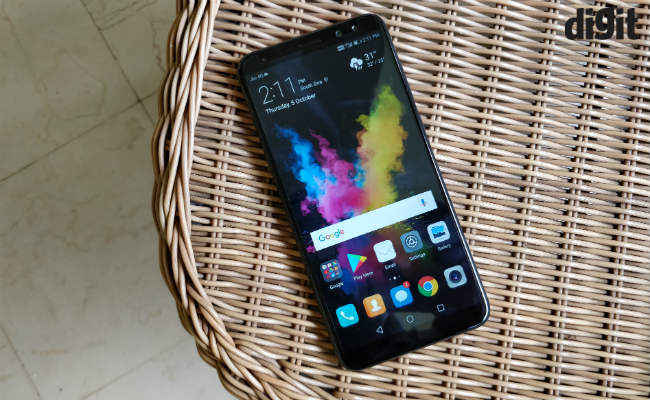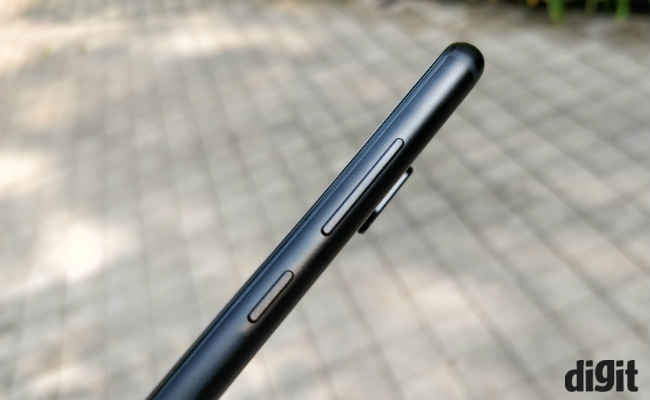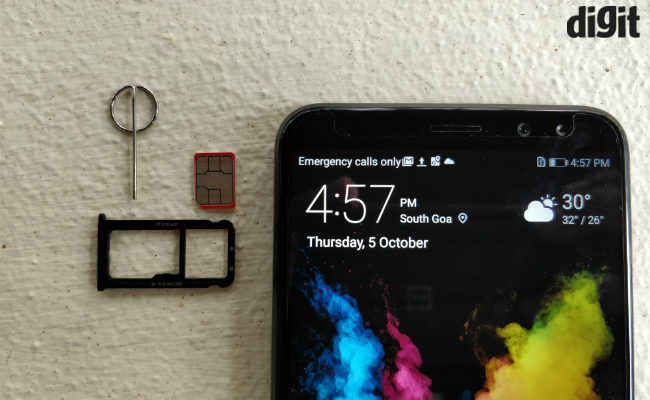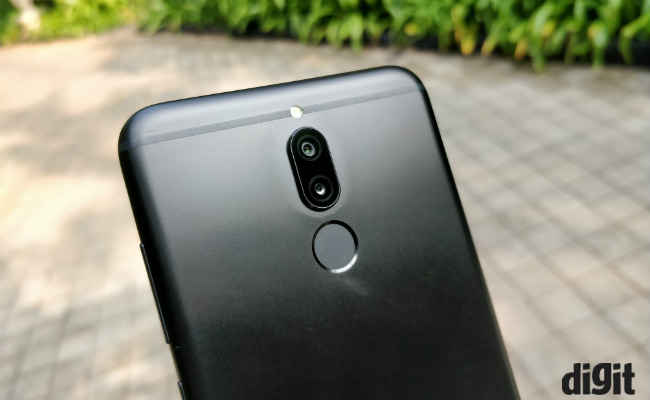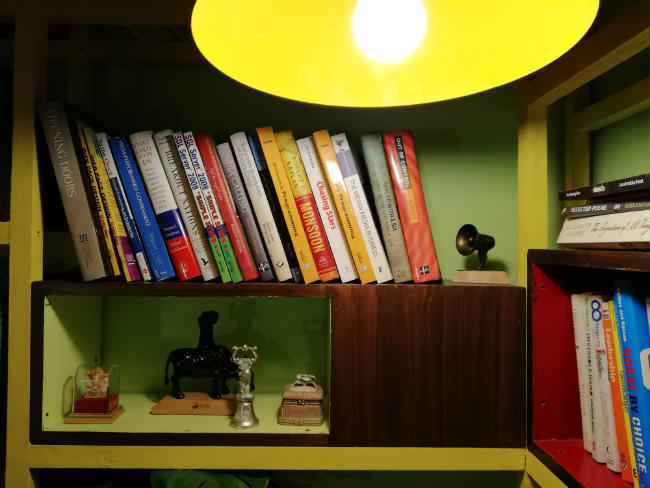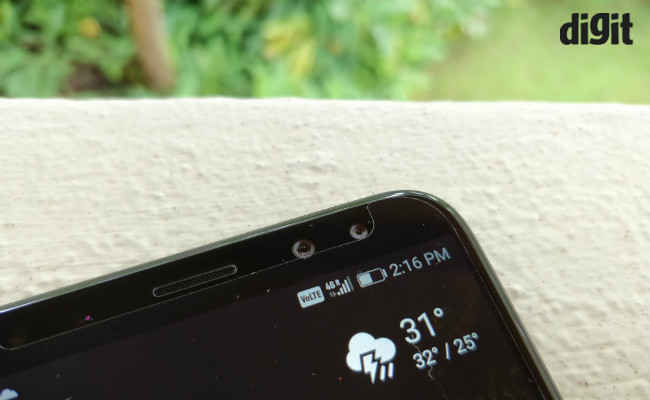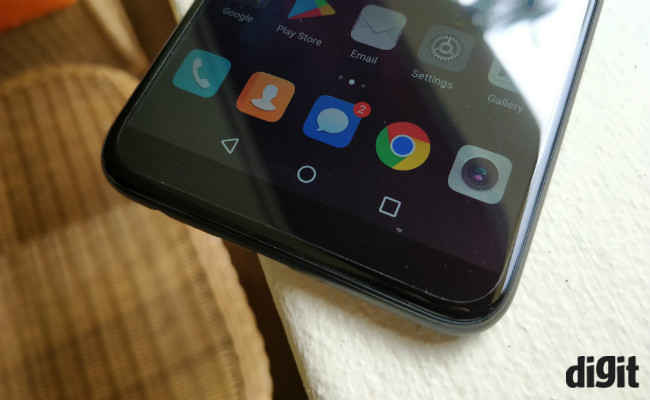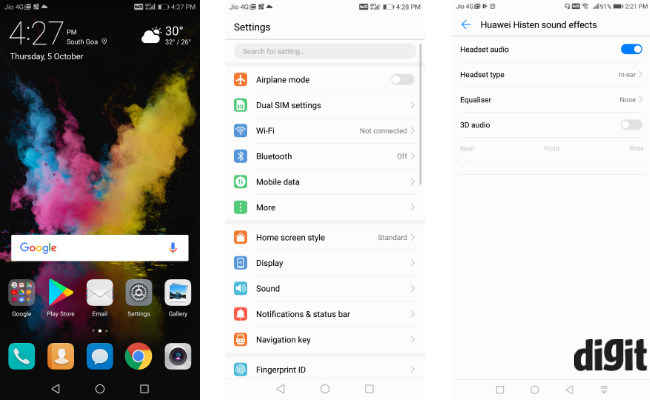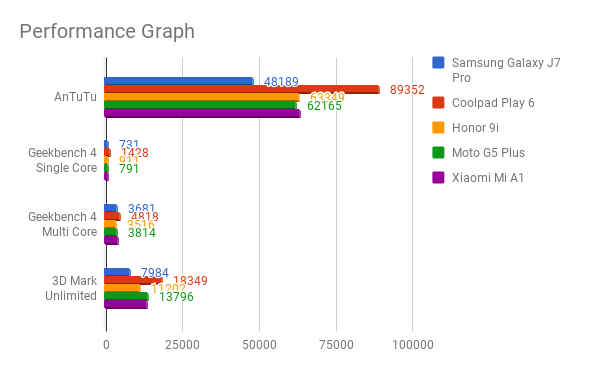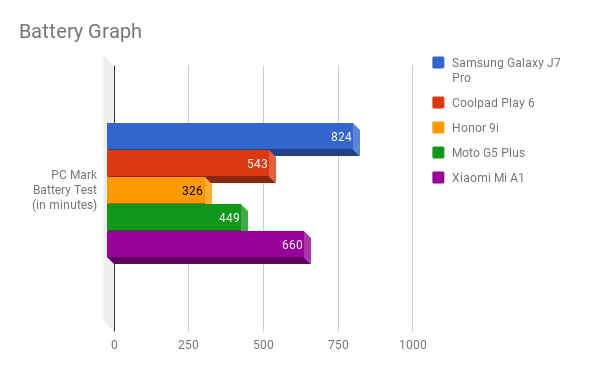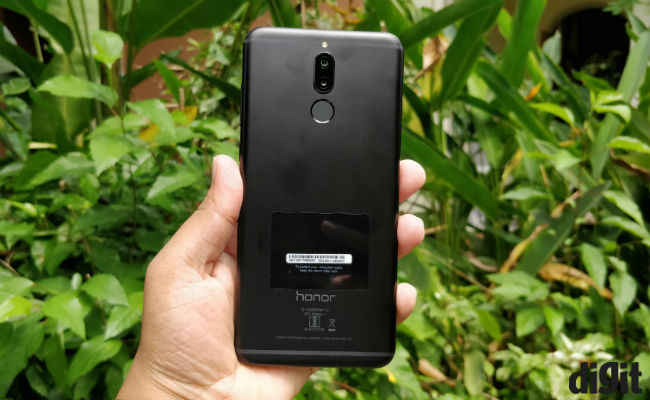Huawei Honor 9i Review : Quad-cammed fighter
The Honor 9i is not the best phone in the sub-20K smartphone category, but it still manages to put up a good case for itself. It is well built, is a decent performer, offers good image taking experience and has a dependable battery life.
But, as with any of these feature rich devices, one wonders whether you actually need all of this. We tested the phone over an extended period to find out.
Build and Design
On paper, the 2+2 camera setup seems to be the most important aspect of the phone, but we think Huawei has done better with the build and design. The phone may not look as intriguing as it does in marketing material, but the aluminum chassis complete with the matte finish, gives it a far more premium look and feel than its peers. The quality of materials used is top notch and the matte black version we reviewed looks quite appealing. The slimmer bezels around the display means one can hold this 5.9-inch device in one hand with ease. However, the taller stance and higher mounted volume rocker has you shifting your grip to reach the buttons often. Good thing is that the EMUI lets you pull down the notification bar with the software key (more on that later).
Rear Camera
The Honor 9i offers a 16MP + 2MP camera setup on the back, which works on the same fundamental tech used on the Honor 8 Pro. So, here the 16MP primary camera is taking all your images and the 2MP secondary sensor adds depth data to those images. The two cameras together produce some really good images during the day in and in ample lighting conditions. Images have decent details and good colour saturation most of the times. The f/2.2 aperture on the primary lens seems weak for low light, but it does a good enough job. Images taken in low light conditions have good colour reproduction and at times, decent amount of details. Honor’s noise reduction algorithm isn't as good as some of its peers though.
Having said that, the camera is inconsistent at times and we observed aberrations in colour reproduction and lack of details, respectively, in daylight and low light. This happens a tad too often to call this a dependable camera. The Honor 9i produced low detail levels in low light sometimes, while it did really well sometimes.
The dual camera setup also lets you take bokeh like images, which are good. Background and foreground separation is good, as is the colour saturation. Low light Bokeh images do require a steady hand, but otherwise come out to be fine.
Front Camera
Like the rear camera, the front facing camera is also quite good. There is a 13MP + 2MP setup on the front, which works on the same methodology as the rear camera. This makes the front facing shooter one of the best we have seen in its price category. The camera captures good details, subjects look reasonably sharp and the beauty mode does not make your face all pink. Although, the beauty mode aggressively softens photos and even wheatish skin tones come out lighter.
You can take bokeh photos with the front camera too, which works quite well. In fact, we reckon this might be the best selfie bokeh taking camera under the sub-20K smartphone category. The phones does an equally good job in low light and normal lighting conditions.
Display and UI
The other defining feature on the phone is the display. This is Huawei’s first phone to feature the taller 18:9 aspect ratio. The company has chosen a 5.9-inch IPS LCD display for the job, which gets the job done. It has decent colour saturation and even on this large screen size, its 2160 x 1080p resolution seems to be doing justice to the UI as well as the content. However, the unorthodox screen size means the UI often prompts the user to turn on fit to size.
You can choose between warmer or cooler tones if you don’t like the default colour fidelity. We did not observe any light bleed on the display though the brightness is quite low. We recorded max luminance of just 385 lux, which is much lower than any other phone in its price category. This also affects the sunlight visibility of the device, which is average at best.
Running the show on the software front is EMUI 5.1, which is layered on top of Android Nougat. The UI feels refined and it seems like Huawei has been taking user feedback into account, thus making the whole UX simpler. By default, you get the normal interface without an app drawer, but you can switch to an app drawer style interface from settings. The notifications and quick toggle menu can be called using a dedicated software button on the bottom navigation panel. This is a good trick, as you don’t have to shuffle the phone in your hand to reach the top of the display. Although, to reach the topmost quick toggles, you would have to eventually move the phone. You also get a version of “spotlight search” feature, which does not work as seamlessly. The service does manage to find keywords among contacts and SMS, but fails to consistently provide the right results for linked google services.
Another thing worth pointing out is that Huawei is still not cutting down on useless apps, such as Mirror and Torch, which can easily be replaced by the front facing camera and a quick toggle. You still get a dedicated mail app, two Honor store apps and a Honor forum web shortcut, which are not really required. It’s good that Honor is providing a gallery app, UC browser, Videos app, weather app, a sound recorder app and more, but all this can easily be replaced by third party apps. Thankfully, some of these apps can be uninstalled, while others have to be disabled.
Performance
With the Honor 9i, Huawei is also debuting its Kirin 659 chipset in India. This is an octa-core SoC, comprising of eight ARM Cortex A53 cores. It is made using the 16nm manufacturing process and from the synthetic benchmarks we ran, it looks at par with competition. Even in real life day-to-day performance with no gaming involved, the Honor 9i felt just as smooth and efficient as any other device in the same price bracket. However, as soon as you bring gaming into the picture, the Honor 9i begins to stutter. Its stuttering and occasional lags are not really a deal-breaker and you won’t notice them unless you have a used a better phone before.
Overall, the performance of the device is not groundbreaking, but it is has just enough to get the job done. Moreover, there are no heating issues on the phone. It does get a tad warm while using the camera or playing a game, but it never became uncomfortable.
The cell reception on the phone was good as well and we didn't observe any anomalies in terms of 4G speeds or VoLTE calling.
On the audio side, we should mention that the single bottom mounted speaker is decently loud, but it is not very accurate. However, as soon as you attach a headphone to the phone, Huawei’s Histen sound effects are enabled, giving the user equaliser settings. There is a 3D audio sound setting as well, which when turned cancels out the equaliser settings. It does improve your listening experience, and is as good as competing Dolby Atmos enabled devices.
Battery life
Using the phone for more than a week, we have observed that its performance is balanced out to provide better battery life. So, in default mode with brightness on auto, the phone provided an entire 24 hours of battery life with some minor gaming (30 minutes). It loses less than 3 percent of charge when kept on standby for almost 10 hours, which is quite good. This battery life can be further elongated by using the extra power saving modes available in the settings. However, if you are gamer at heart, you would need to carry a power bank as the phone eats up battery very quickly while gaming. The same is true with the camera app. The sad part is that the phone does not support fast charging, nor does it use a Type-C port.
Bottomline
The Honor 9i is amongst the best phones in the sub-20k category, but it’s not perfect. It has well built, has a decent display, but its performance should have been better. Also, the camera needs some tuning so as to be more consistent. It can last you all day on a single charge, but only if you’re not playing games.
All that said, the Honor 9i is certainly amongst our recommended devices, but it’s not the most value for money device. The new FHD+ display along with the 2 + 2 camera setup does add some value to the phone, but it still does not make the best buy in the category.
How it compares
The Honor 9i goes up against the likes of the Moto G5s Plus, Xiaomi Mi A1 and Samsung Galaxy On Max. While the performance of the Honor 9i is almost at par with its competitors, it is better built than any of them. The 9i also has the best selfie camera among sub-20K smartphones, and offers bokeh from both front and rear shooters. Its battery life needs work, but it is not bad in any way and is definitely dependable.
The Moto G5 Plus remains the better buy in this segment, but the Honor 9i is certainly one you can consider, especially if you want a better front camera.
Hardik Singh
Light at the top, this odd looking creature lives under the heavy medication of video games. View Full Profile

